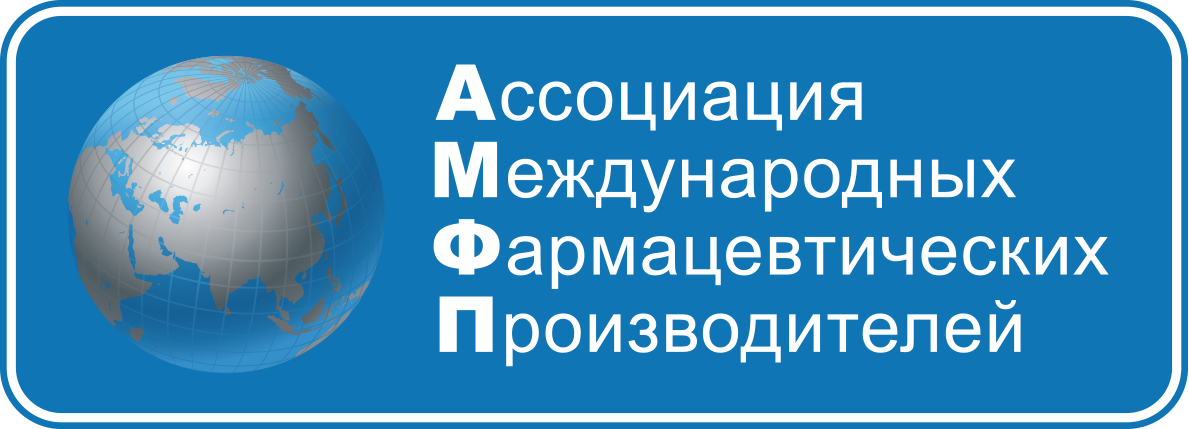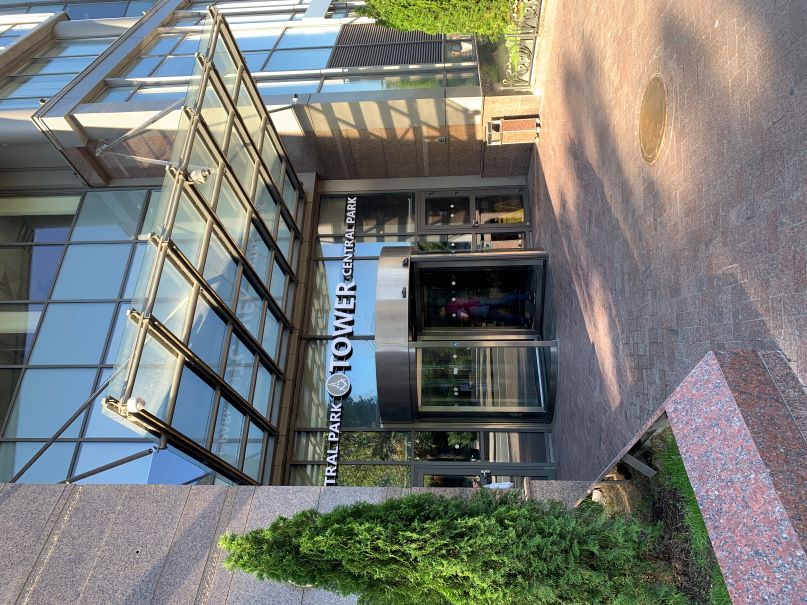AIPM and AESGP: New Prospects for Partnership for Improving the Quality of Life of Russian People
16.02.2015The Associations discussed the specifics of the distribution of non-prescription drugs, as well as the implementation of the concept of responsible self-medication in Russia February 16, 2015 - The Board of Directors of the Association of the European Self-Medication Industry (AESGP) and AESGP Working Group on the Development of OTC-Market in Russia meetings were held in Moscow for the first time.
The meetings were attended by the members of AESGP Board of Directors: Roger Scarlet-Smith (President of AESGP, GlaxoSmithKline), Birgit Schuhbauer (Johnson & Johnson), Joseph Infesta Fernandez (Sanofi), Daphnй Lecomte-Somaggio (Association AFIPA) and Joerg Ole (Bayer Consumer Care), AESGP Director General Hubertus Crantz and representatives of AESGP member companies. The participants discussed among other issues global trends in OTC development and local specifics, including the creation of the single pharmaceutical market within the Eurasian Economic Union, updating EDL, ethical issues involved in product promotion, etc.
AESGP is a recognised expert organization in the sphere of OTC market development and the establishment of progressive regulatory practices in this segment in Europe with more than 50 years-long track record. To date, AESGP represents the interests of over 2,000 companies and organizations. In 2014, the Association of International Pharmaceutical Manufacturers (AIPM) joined the AESGP, becoming the only professional organization representing the pharmaceutical industry of Russia in AESGP, and the Executive Director of the AIPM was elected to the Board of Directors of AESGP.
In particular, AESGP’s scope of activities includes the issues involved in OTC products promotion, pricing, economic and legal aspects of access to medications and their circulation in the market, etc. AESGP pays particular attention to the development and implementation of the concept of responsible self-medication, which means sensible use of OTC medications by the population for the prevention and treatment of mild ailments that do not require professional medical help.
The principles of responsible self-medication were developed by WHO as early as the 1970s and have been further developed in connection with the advent of an increasing numbers of effective modern OTC drugs, which have become much more accessible to patients. Progress has been also achieved in consumer awareness and their understanding of responsibility for maintaining their own health and the health of their families.
According to international experts, promotion of responsible self-medication through the use of OTC drugs leads to significant improvement in health and quality of life while reducing public spending on health care due to optimization of health institutions operation and preserving good working health of the people through proper and timely use of OTC drugs.
"AIPM Membership in AESGP is quite logical, not least because the share of OTC drugs in the general structure of the Russian pharmaceutical market is substantial. A significant number of AIPM member companies have a diversified product portfolio, which includes both Rx and OTC drugs. The Association has a special OTC Committee. All these facts make the issues of effective management of OTC-products distribution, including the tasks involved in the establishment of the single market for drugs in the Eurasian Economic Union, as well as the promotion of the concept of responsible self-medication, particularly relevant. One of the most important tasks of AIPM today, as it has always been, is the study of the best European practices in this area and their implementation in the Russian pharmaceutical market," Vladimir Shipkov, theexecutive director of the AIPM, said.
“All healthcare systems struggle to have sufficient resources to finance medical progress. This is especially true in light of the overall complex economic situation in the world. At the same time, people tend to become more and more demanding for high-quality medical treatment. The answer to these challenges could be implementation of self-care concept recommended by the WHO. However, this is impossible without effective regulation of OTC industry, which guarantees the circulation on the market of only high-quality, effective and safe products for self-medication and does not limit the rights of consumers for the access to objective information about various opportunities for their own care. Hopefully, AIPM together with AESGP will be able to make a significant contribution to the development of self-care in Russia”, - statedAESGP Director General Dr Hubertus Cranz.
Opinions:
"In our country, self-reliance of people in the use of different medications without professional medical advice has become so wide-spread that it is necessary to revisit the concept of responsible self-medication. A key characteristic of self-medication is one’s responsibility for one’s own health, which is impossible without appropriate information. People should be made fully aware, when self-medication is appropriate and when a visit to the doctor is necessary. The distinction between these cases should be clear for the patient. It is advisable that even OTC drugs are first recommended by a medical or pharmaceutical professional. After that, any person who reads the instructions carefully and follows them, as well as the recommendations of the doctor, can practice self-care without any significant hazard to his or her health," – believesAlexander Chuchalin, Director of the Federal State-Funded Organization “Institute of Pulmonology” of FMBA of Russia, MD, academician (quoted from article "Being One’s Own Doctor" // "Rossiyskaya Gazeta", Special edition: "Pharmaceuticals" No. 6484 (212). The article is available online at the link).
"The problem of responsible self-medication, "responsible" being the key word, is a hot issue in Russia. Russian people are not very disciplined when they have to see a doctor, and in more than half of the cases patients do not follow their doctor's prescriptions. They either do not buy the medicines prescribed to them or forget to take them in time, or do not finish the prescribed course. This, of course, has severe consequences, especially in the context of the economic crisis, when being on a sick leave results in the financial loss for the employee. In other countries, people have long realized that teaching patients the right methods of self-medication does not only save them from visiting a doctor but also improves the quality of treatment, because patients are more motivated to get well. An informed and responsible patient also brings tangible benefits to the health care system: in Europe, the savings through responsible self-medication are estimated at over 16 billion Euro. However, our citizens have much to learn before their self-medication becomes truly responsible. An important role here is to be played by patient education by doctors, nurses, and pharmacy workers. If telemedicine consultations become more wide-spread, they can also make the basis for the Compulsory Medical Insurance Plus system suggested by the Ministry of Healthcare," Larisa Popovich, Director of the Institute of Economics in Healthcare of the National Research University - Higher School of Economics, comments.
"We had an excellent working meeting with the professional team of AIPM, where we discussed Russia’s recent legislative initiatives in the healthcare sector. Special focus was put on the concept of responsible self-medication. In Russia, as well as in the rest of the world, the preventive medicine model and responsible self-medication with OTC drugs have become priority issues on the agenda. Such meetings are a great example of the way cooperation benefits all the parties involved," said Joerg Ole, Head of Bayer Consumer Care Europe.
"Over 70 % of the developing Russian pharmaceutical market is the medications purchased by people at their own expense in pharmacies. Approximately half of them are OTC drugs, which are most often purchased at one’s own discretion. Thus, the level of the population’s awareness of health issues and diseases, understanding responsibility for one’s own health when making decisions on the purchase and use of an OTC drug have a direct impact on the quality of treatment in Russia. That is why it is so important for doctors, pharmacists or the manufacturers of the medication to maintain meaningful and professional dialogue with the patient. The pharmaceutical community can do much to make patient's attitude more responsible. This is especially important during the health care reform in Russia, which places greater emphasis on pre-hospital care and innovative development of the system," Marina Veldanova, Senior Vice President of Ipsen Russia and CIS, said.
"The primary task of pharmaceutical manufacturers is to produce a medicine and offer it to the patient. The responsibility of the patient, first of all to oneself, is to make a sensible choice in the pharmacy and use the selected drug in the proper way. Both of these factors largely determine the outcome of the treatment, make it more efficient and minimize side effects. A sensible informed choice of medications can only be made with the help of a specialist. There is a lot of information about medicines and treatments, and sometimes the intention of the authors of such texts is to make profit rather than help people. Therefore, pharmaceutical companies really need to provide guidance to the consumer, encouraging to read the instructions carefully, emphasizing possible side effects from the misuse of the drug, etc. We have been successfully working in the OTC segment for a long time, and we place priority to the issue of responsible self-medication by implementing a number of projects aimed at raising the pharmaceutical literacy among the population,"Dmitry Efimov, Senior Vice President of STADA AG Russia, CIS and South Eastern Europe and CEO of NIZHFARM,comments.
Reference:
Association of the European Self-Medication Industry (AESGP) is the official representation of manufacturers of non-prescription medicines, food supplements and self-care medical devices in Europe. It is composed of national associations and the main multinational companies manufacturing self-care products. Founded in 1964 in Paris.
Association of International Pharmaceutical Manufacturers (AIPM)was established in 1994. In the Russian Federation, AIPM represents interests of the top multinational pharmaceutical companies that manufacture modern, efficient, safe and high quality medicines. AIPM members are 55 multinational companies that account for over 80% of the global pharmaceutical production and over 60% of drugs supplied to the Russian Federation.
For more information please contact:
|
Irina Sheykkha |
Julia Semenina |

